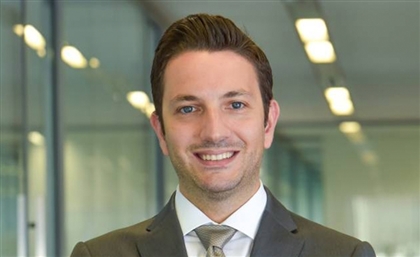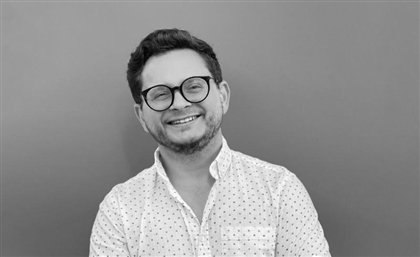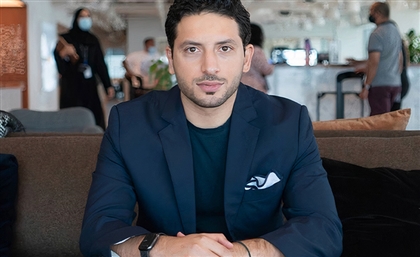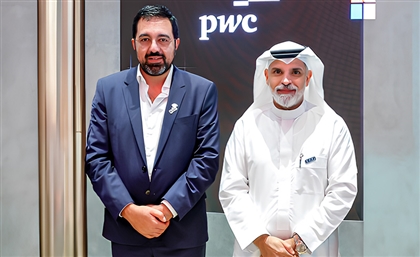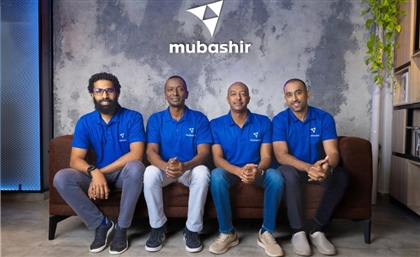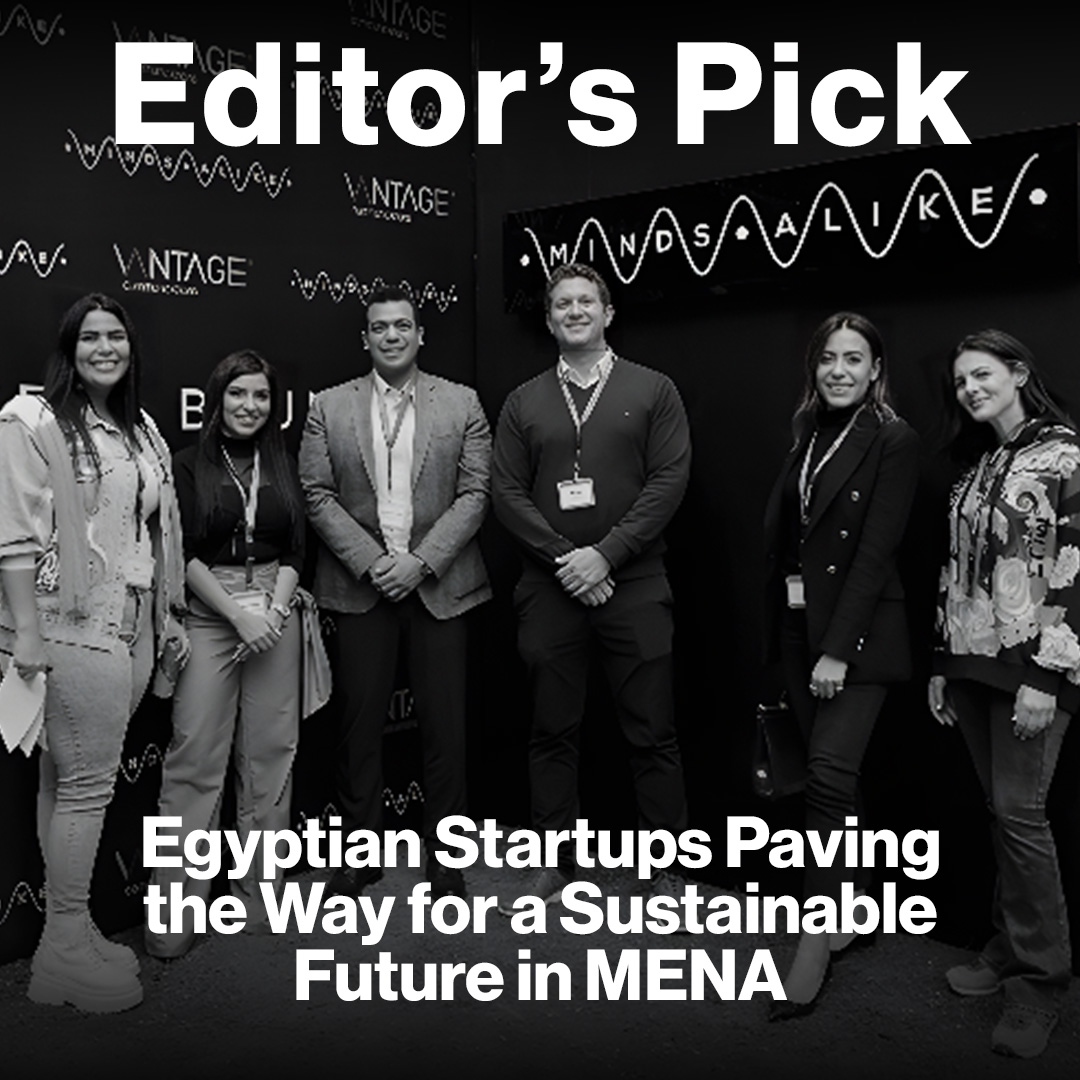Sharif El-Badawy: “The Only Way to Change the World is Thinking About the Impossible”
In a chat with Valentina Primo, the powerhouse behind 500 Startups' MENA Fund talks about building unicorns, scaling, and why the Middle East needs to focus on tech startups more than ever.
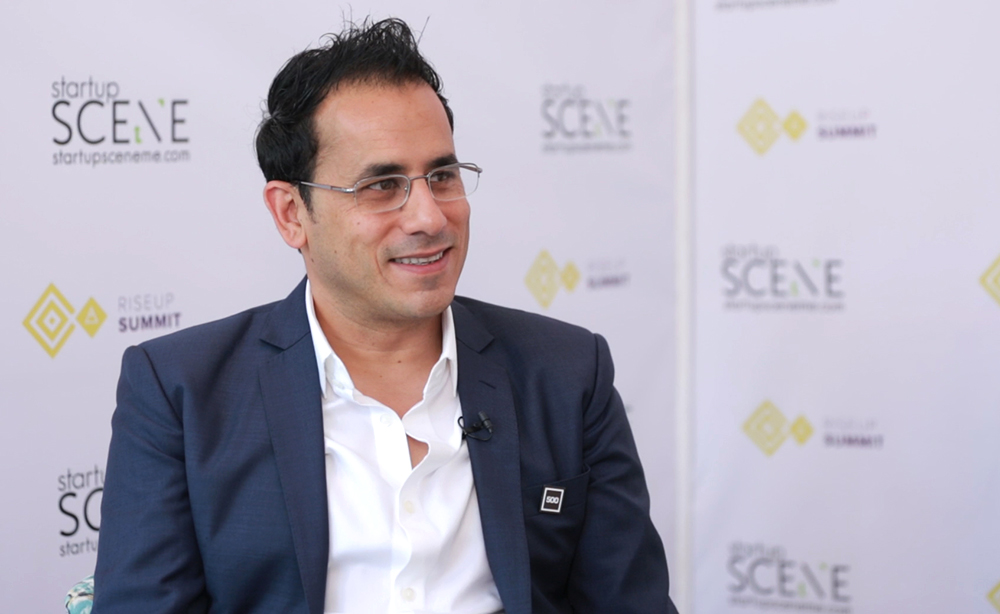
The investor at the helm of one of the world's most active VCs, 500 Startups, Sharif El-Badawi steered the wheel of the organisation's incursion into the Middle East, launching their MENA-focused fund, 500 Falcons, which has already supported a wide array of Middle Eastern early stage startups, from Eventtus, to Breadfast and more recently Moneyfellows.
A technologist, investor, and serial entrepreneur, El-Badawi co-founded several companies in the consumer internet and B2B space over twelve years before joining Google as Partner Lead to VCs and startups and serving on several advisory boards for startups in the MENA region and Silicon Valley. Today, the Egyptian-American investor is also the Chairman of the Board and Head Mentor at TechWadi, a Silicon Valley-based organisation building bridges between the tech hub and the MENA region, where he leads the TW100 mentors. Between his panels and talks at the RiseUp Summit, El-Badawi sat down with Valentina Primo at the Interview Hub, to talk about the Middle East's diverse entrepreneurial scene, their focus on ecosystem building, and why startups shouldn't think about scaling when they begin.
Tell us about your 500 falcons fund.
Our global mandate from the beginning has been to empower entrepreneurs from all over the world; the most unlikely founders from the most unlikely places that don’t look like the typical prototype SV founder. In the MENA region, we’ve made 32 investments from our main fund since 2012, and eventually the swell happened, so we decided to start 500 falcons.
And you’ve been very active; you’ve already made several investments.
We’re a very active fund by nature; it’s built into our investment thesis; we have large portfolios of small investments to give entrepreneurs a chance. We believe that at the seed stage it’s hard to tell whether that is going to be the next unicorn or not. But we want to give them an opportunity to prove themselves. Our average check size is relatively small, about $100,000, but we reserve half of our fund for follow-up, so we’ll double up when they go on an rise a series A and then double down to maintain our pro-rata in the company. So these two components are a strategy that we use at the seed stage because of the lack of data.
Is this a sign that there are more VCs in the Valley looking at MENA startups?
I would hope so, but not necessarily. This is something that has been in our DNA in that we have always been looking at the rest of the world; we have investments in 66 countries. But when we look around at other VCs in the Valley and try to encourage them to look at the MENA region, but we are still very early in that.
In the Valley, the rest of the VCs have their markets that come to them. If they have a programme, yes, they get international startups, but they are not necessarily going out to these countries and invigorating the ecosystems. We consider ourselves more than a VC, rather like ecosystem builders, so we run our programmes for our entrepreneurs, we invest directly, but we are also educating investors, acceleration managers and corporates in large companies, because those are all part of the ecosystem as well. So when you run into the MENA or other emerging markets, it’s not the entrepreneurs alone who need support; it’s everyone enabling that ecosystem, even academia and government, because those are the big pushers beyond the small ecosystem lifecycle.
In academia, we need more people who are thinking in a design thinking way. From the government point of view, it’s regulation or de-regulation. How do you make it more safe for investors and founders, and employees to own shares? Because all those mechanisms make up what Silicon Valley has become; it’s about giving everyone shares. But most environments don’t support that today. Government plays a big role, and how can they help? that means getting out of the way, which doesn’t mean getting quiet and just sit there, but removing the friction through the regulatory environment, so it’s a very proactive “get out of the way.”

Corporates can also play a huge role in emerging markets to support the ecosystem. They think the first thing they do is starting an innovation department; so then those programmes end up shutting down because the company doesn’t see the benefit. We do innovation teaching and what we tell them is: become a customer for the startup and, if you really like what they are doing, become an investor. We usually see that starting with telcos and banks. The third one is acquiring them, having some M&A activity, because that’s the end of the ecosystem cycle that is still missing in most regional ecosystems, it’s the exit path. It’s really important for all of us to make sure that startups are going from Angel, to seed, to series A, series B, on to exit. If we don’t do that, investors won’t invest again, and the market will dry up and be done. That’s something we have to keep our eye on.
In terms of government support, it was a big year in Egypt with the government launching Fekretak Sherketak, and the Cairo University creating the FEPS business incubator. Are we far from a supporting ecosystem?
If you take each country in the Middle East on its own, they are quite different from each other, and they have a similar challenges from the existing law. Many of them have drafted charters on what they need to do to get to the next generation of startups. And there are very small things, easy fixes. There needs to be training at the base of the pyramid, because you’re not going to get a unicorn unless you have 100,000 startups at the incubation phase, and lots of them will fail, but at least they can learn from that and move on. Or you can have 10,000 seed-stage startups, and many of them will fail. But this cycle must repeat itself, you can’t expect them to succeed from the first time. You need them to fail and learn and that culture of failure needs to be accepted all around, from the lenders, the bankers, to family It’s challenging, even in the US, it was not widely accepted by our friends or family. You were shamed if you didn’t do well. It’s a very natural thing to face.

Egypt and the UAE announced last year that they will change the bankruptcy laws, because you can’t do a startup and, in the back of your head, if you fail you go to jail. That does not encourage entrepreneurship very much. These are the type of things governments are working on, to make it easier to start a business, but also to close one. I’ve heard stories of people not being able to close their business for years; these are horror stories.
How can entrepreneurs build business that scale, given that they often stem from the need to solve a very local problem, often very specific to the region?
You have to start in baby steps. I’m not event trying to go to these startups today and tell them ‘think about scaling’ because a lot of them are still working on just getting a business off the ground, understanding the metrics and getting a process for growth. 500 Startups really focuses on that part: the pre-series A process of getting them to adapt to some kind of process for growth. And when west growth hacking, we don’t mean it like a messy thing. It’s a very structured process that we are trying to teach; it’s part of the mindset of iteration; that it doesn’t have to be perfect from the beginning, being a nimble type of team where every week you are measuring uplifts, so measuring is a big thing. We focus a lot more on that.
You have a few companies that made it past series A and are now at the scaling phase, and part of them got to that stage because they brought DNA from outside into that company. One thing we haven’t address too much yet is leadership and team management. At Series A level ,your investors are going to expect that you have a management team, and every person in that team is strong, focused on operations, or product, or marketing. We’re not there yet, but there are examples in the UAE where companies have reached that level of scale. Take Careem, Fetch, or Souq, they have been able to scale because of the diversity of their team. Companies like Instabug, for example, understood early on that their market was not here but abroad; and those kind of companies are my favourite because they create GDP.
But I’m very happy with others that do business model cloning, which they adapt here. I really admire that the innovation that is happening in that adaptation or localisation, which from the outside we didn’t see. Because business model cloning sounds like a derogatory term, but the way Careem took ridesharing, for example, with cash on delivery, was mind boggling for us; but they knew better. Those are thing we would have never thought about.
Is bootstrapping seen as an advantage by investors?
I really recommend bootstrapping. That builds certain muscle in the memory in you, as a founder, that is golden. So even when they get money, they are still very efficient with their capital because they are spending it frugally and efficiently. If they are not that polished and need training, it’s great to surround yourself with great mentors.
If they are early stage, I’d like them to go through an incubator and fail. That makes you stronger, and that’s what we love about the Egyptian ecosystem the most; the tenacity and grit the founders have shown, with the biggest challenges in the world: very low capital, yes, the largest population but mostly under the poverty line, so they don’t have the purchasing power of Saudi Arabia, and despite that, they are succeeding. They can take $100,000 and stretch it over a year, which would not happen in more mature markets.

The disparity between Arab countries like Egypt, UAE, or Saudi Arabia is huge. Can we really talk about a Middle Eastern ecosystem?
I’d like to, and I always try to say ‘the MENA region’. That’s why our fund is called the MENA region. Some people don’t like that; but the problem is that one country alone is not that attractive for investors, because of the instability, the stage that they are at in regulatory infrastructure. But if we look at it as a region, we are a nearly 500 million people Arabic-speaking market that has almost been untapped in business history, besides real estate, oil and gas. That is powerful in a lot of ways, because while Egypt may have attributes that are attractive, the UAE has other attributes. If you take it as a whole, it is heterogeneous as an ecosystem, and there are a lot of borders - which causes challenges - it is a very attractive story. Geographically, it is in a very strategic position.
So what do we do about that heterogeneity? For example, Egypt has the largest population of engineering talent, but product management, leadership, CEO skills, and CTO skills have been historically stronger in Lebanon, Jordan and Syria. In the UAE we see much more savvy founders, in the sense that there are a lot more MBA and ex management consultants. That’s attractive because they are savvy, they can fundraise, they are super polished, but they lack the technical skills within the founders’ team. That, in Silicon Valley is not very positive, if you are outsourcing your tech company. IT has to be built-in, from the start. Because part of the ability of tech startups is to use tech as a leading indicator of our strength. But capital is more available in the UAE, and interacting and finding customer is easier. To me, you can’t take one country or another, you have to take the entire ecosystem.
Do you look at the regime change in Saudi Arabia with positivity?
I can’t help it. I’m naturally an optimistic person. These [the 2030 vision] are visions that are crazy for any normal person. It’s just dreamy. But that’s why I’m in the business; to dream beyond what’s possible. The job of VCs is not to project downside; my job is to take the risk in the potential upside that, maybe won’t happen, but what if it does? That possibility is the spark. Maybe it won’t happen the way we expect it to happen, but at least they are taking that risk. In all that sense, I’m cautiously optimistic, but I’ve always been like that, and that’s the DNA Google founders have instilled in us as well; being excited about the impossible, which means not trying to just improve things incrementally, because that doesn’t bring change to the world. The only way you can bring change to the world is to think about something impossible, maybe you will fall short, but at least you are doing something that is outside the normal mould; and that’s how the best inventions have happened so far.
Photography and video by @mo4network's #MO4Productions.
Trending This Month
-
Apr 05, 2024



